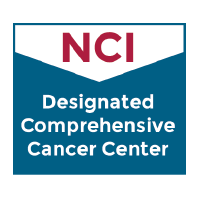
Rectal Cancer
Rectal cancer occurs when cancerous cells develop in the tissue of the rectum. The rectum is the last part of the large intestine and leads to the anus, which is the opening to the outside of the body. Body waste is stored in the rectum until it is eliminated from the body through the anus.
Although rectal cancer is a life-threatening disease, it is a highly curable form of cancer if found early. Therefore, regular check-ups and screenings are very important.
Although the exact cause of rectal cancer is unknown, certain risk factors have been identified that may increase a person's chance of developing the disease. These include:
- Age. The majority of rectal cancers are diagnosed in people aged 50 or older, although the disease affects all ages.
- Bowel disease. A history of colorectal cancer, intestinal polyps, and diseases such as chronic ulcerative colitis, Crohn's disease and inflammatory bowel disease increase a person's chance of developing rectal cancer.
- Diet and exercise. A diet high in fat, particularly from animal sources, and an inactive, sedentary lifestyle can increase a person's chance of developing rectal cancer.
- Ethnic background and race. Jews of Eastern European descent, called Ashkenazi Jews, have a higher rate of rectal cancer. African-Americans and Hispanics have a higher death rate caused by rectal cancer, which may be caused by insufficient screenings, poor diet and lack of exercise.
- Family history/genetic factors. Specific genes have been identified that significantly increase a person's chance of having rectal cancer. People with a strong family history of colorectal cancer, as defined by cancer or polyps in a first-degree relative younger than 60 or two first-degree relatives of any age, are also at increased risk for developing rectal cancer.
- Smoking and alcohol. Research suggests that smokers and heavy drinkers have an increased chance of developing rectal cancer.
Our approach to rectal cancer
Colorectal cancer specialists at UCSF have decades of experience with diagnosing and treating rectal cancer. We focus on providing the most effective care for each individual patient. Surgery is the most common treatment for all stages of rectal cancer, and we use the latest surgical approaches. Many patients will also have radiation, chemotherapy or a combination of the two.
In addition to treating people at every stage of rectal cancer, our team often handles complicated or unusual cases that other hospitals turn away. We also offer opportunities to try experimental treatments by joining a clinical trial.
Awards & recognition
-

Among the top hospitals in the nation
-

Best in Northern California for cancer care (tie)
-

Designated comprehensive cancer center
UCSF Health medical specialists have reviewed this information. It is for educational purposes only and is not intended to replace the advice of your doctor or other health care provider. We encourage you to discuss any questions or concerns you may have with your provider.





